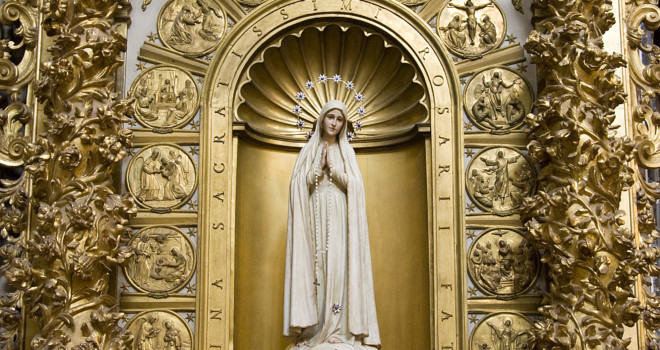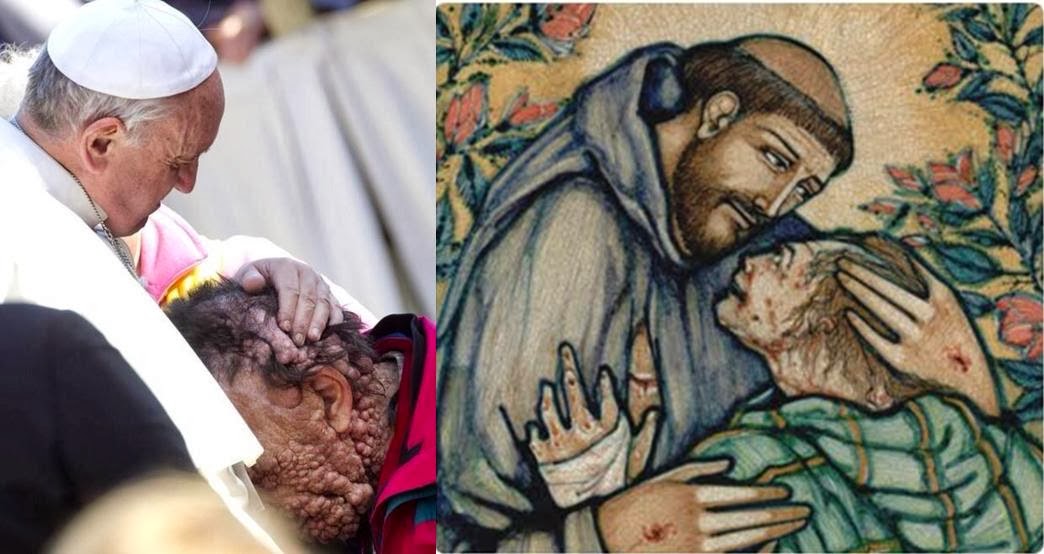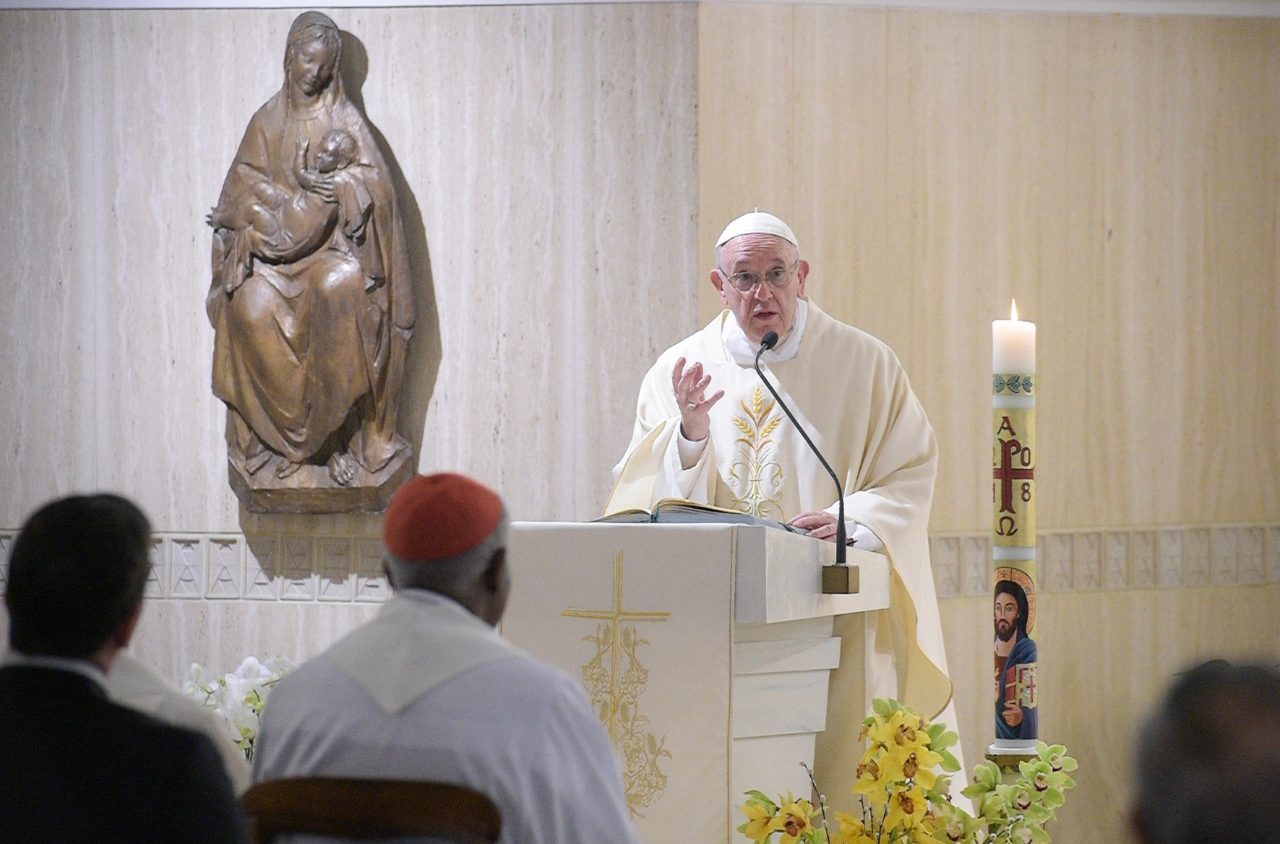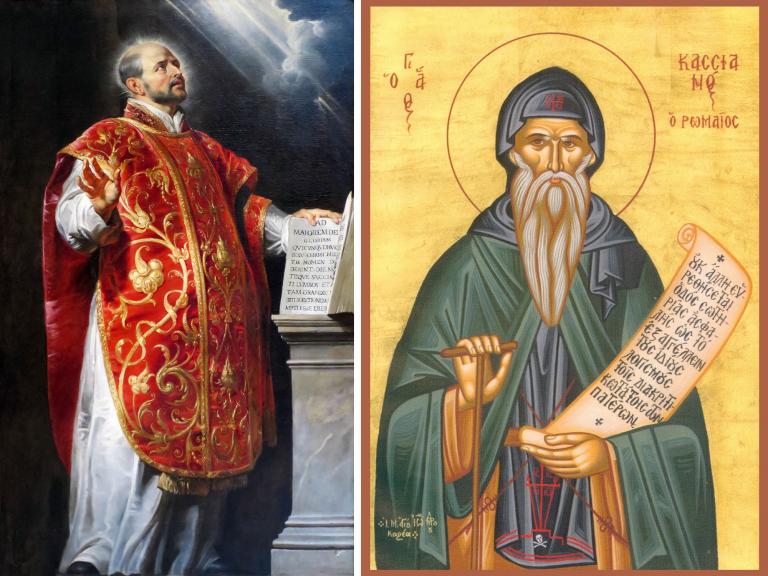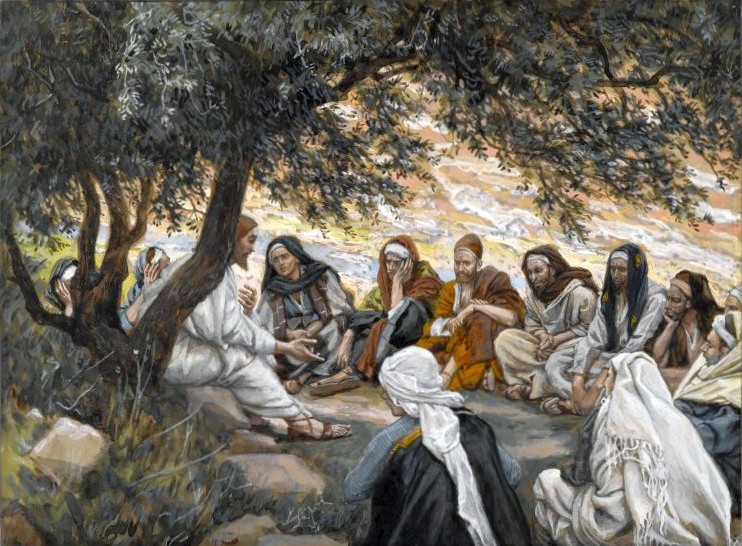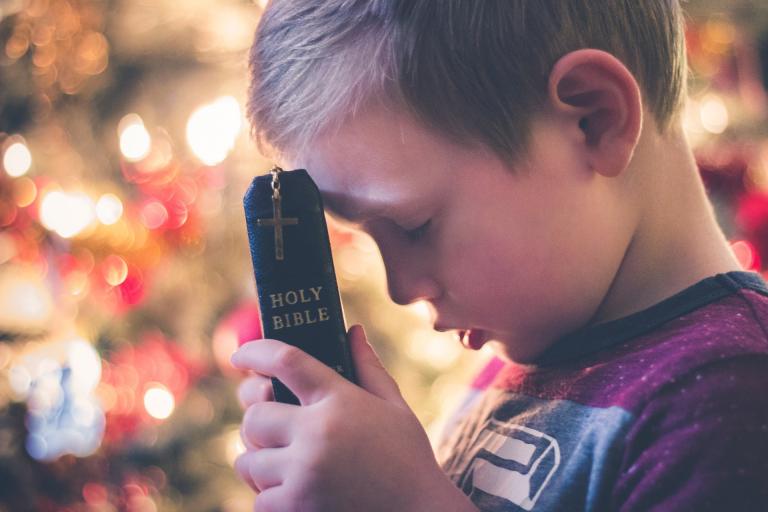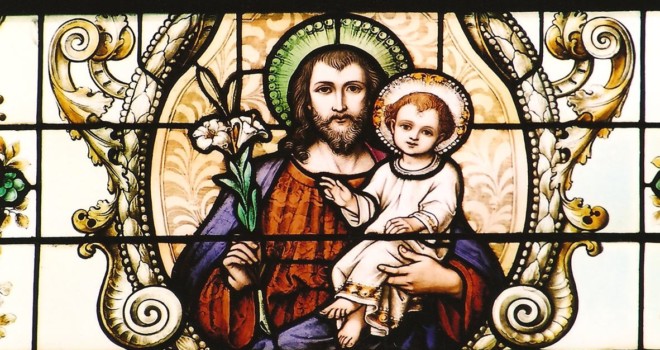Archbishop Follo: The greatest love
With the Invitation to Answer the Love of Christ by a Loving with Trust and by a Total Surrender.
MAY 04, 2018 19:02
FRANCESCO FOLLO
Roman Rite – Sixth Easter Sunday – Year B – May 6, 2018
Acts 10.25-15.34-35.44-48; Ps 98; 1Gv 4, 7-10; Jn 15: 9-17
Ambrosian Rite
Acts 26, 1-23; Ps 22; 1Cor 15, 3-11; Jn 15, 26-16, 4
Sixth Easter Sunday
1) The name of Christ’s disciples: “Friends”.
On this sixth Sunday of Easter, Jesus, who continues to invite us to “remain” in Him, reveals to us who He is, the Beloved, and that his life is a relationship of Love. This is why he calls us to be a community of people whose vocation is to share His love.
After exhorting his people to remain in him as the branches in the vine (see the last Sunday’s Gospel), today Jesus asks us to remain in his Love, not to move away from the source of life, and to open ourselves to Him who, in the gift total of himself, has included us in his relationship with the Father.
The love of Christ is the utmost love because he gives his life for us, his friends: “There is no greater love than to give one’s life for one’s friends. And you are my friends “(Jn 15:13).
Let us not forget that among the friends whom Jesus addresses in the cenacle there is Judas (who has just gone out after having called him “friend”); Peter (who will deny him three times) and the others (who will leave him alone during the passion). However, he calls them “friends”. Today we are in the cenacle of the church and are called by him “friends”, even if we are fragile and sinful.
In fact, at the last supper, but not only then, Jesus calls his friends and his peers (the love of friendship is among equal persons and is mutual) those who will betray him disowning him and going away from him. Why? Because he loves them with a gratuitous love and knows that they will respond to his love. Even if they do not love him with fullness, at least they want to love him, grateful for the love he has for them.
When they see him crucified and when they discover his boundless love, they will believe in this “excessive” love.
We too are called to become his friends by knowing his love for us. This statement is beautiful: “I call you not servants, but friends” (Jn 15, 15) because the noun “servants” (in the Greek text there is written “slaves”) per se has an honorary title and indicates the ministers of the king. Minister is a word of Greek origin which means servant. So Ministers are the most important persons after the King. The most important, after God, are the servants of God, the prophets, the saints. However, today Christ teaches “You are not” servants “, not even the greatest ones. You are something more. You are equal friends among yourselves and with Him. We are called to become equal to God. Why? Because the love that the Father has for the Son, the Son has given to us and we can love with the same love of God and become like God who is love. So we are friends, peers. It is precisely this brotherly love in Brother Jesus, which makes us equal to God. In the final part of v. 15 of the chap. 15, Jesus continues: “the servant does not know what his master is doing; but I have called you friends, because all that I have heard from my Father I have made known to you. “Jesus explains what he means by” friends “. Christ recognizes the disciples as friends because they do what He asks them namely if they believe and love. In front of the King of Kings, the condition of the disciple is per se that of the “servant”, a term that in the Bible (but not only) represents a title of importance, because it characterizes the relationship with God. It indicates a person faithful and available to the Lord. It does not have the meaning of a slave, except when it indicates a man subjected to a master of this world or (see Jn 8:34) to the power of sin. The title of “servant” is already important, but the title “friend” indicates that at the center of the life of God and of man, there is friendship, the most perfect form of Love, the free and non-possessive relationship that realizes the communion of people.
2) Friends of Christ.
Today Christ reveals to us that we are not only servants and disciples, but friends.
If we were not ministers (= servants), we will, in any case, be subservient to the King. Even if we are happy to serve a good cause, we will always be subjects who are compelled to observe the law. If we were only disciples, we would have to be schooled by the Master, happy to learn the truth and to receive words of eternal life.
But we are also “friends”, we are “subjects” to the law of freedom generated by the Love to whom He has entrusted himself and that makes us participate in it if we remain in his word: “This I command you, love one another”.
This, more than a command, is a plea that Jesus addresses to us because He first loved us and now He gives us strength so that we can also do it. It is the novelty of the ecclesial community: to be a school of friendship where we learn the logic of gift and faith.
To remain in the friendship of Christ means to enter into a new relationship with God, the God of the New Covenant, who is not so much a supreme legislator who asks us to observe the Law but a Father who implores us to believe in a Love that has reached the point of giving his own Son.
In this friendship with Christ, He – who is the shepherd, the way, the truth and the life – becomes the door through which the Father’s Love becomes our home. It is so because, today, Christ repeats that we are at home in the love that the Father has for him, the Son. How do we remain in this house? We remain in the house of love if, in turn, we love. “Love one another as I have loved you”. By loving our brothers, we are in the Father’s House. This fraternal love makes us friends of Christ. By loving our brother we become like God, like the Son, who is such because he loves his brothers with the love of the Father.
In this friendship
- the way is not a journey to make, it is a person to follow: Christ;
- the truth is not an abstract concept, it is a man to spend time with Christ;
- and life is not simply a biological fact. Life is to love as we are loved, to love the One who loves us; it is to love Christ.
“Friends” is the truest name of the disciples of Jesus. We are no longer servants, forced to observe a law, but free friends of that freedom generated by the love to which he has entrusted himself and which makes us participate in it, if we remain in his word: “This I command you, that you love each other”.
3) The consecrated virgins, witnesses of friendship with Christ.
The vocation to friendship with Christ for the consecrated virgin should be understood in the light of the Song of Songs where we read: “Now my beloved tells me:” My lover speaks and says to me, “Arise, my friend, my beautiful one, and come! For see, the winter is past, the rains are over and gone. The flowers appear on the earth, the time of pruning the vines has come, and the song of the turtledove is heard in our land. The fig tree puts forth its figs, and the vines, in bloom, give forth fragrance. Arise, my friend, my beautiful one, and come!”(Song of Songs 2, 10 – 13).
These women, consecrated to Christ with the gift of themselves, show that they believed in the love of God and offer themselves without reserve to Jesus, Spouse and Friend, testifying that “at the beginning of being Christian there is not an ethical decision or a great idea, but the encounter with an event, with a Person, which gives life a new horizon and, with this, the decisive direction “(Benedict XVI).
As brides of Christ, the consecrated virgins bear witness to the love of friendship, which God fills us with and which we must communicate to the others.
With simplicity but with perseverance, these women show that friendship with Christ coincides with what the third question of our Father expresses: “Thy will be done on earth as it is in heaven”. In the hour of Gethsemane, Jesus transformed our rebellious human will into a will conforming with and united with the divine will. He has suffered all the drama of our autonomy, and just by bringing our will into the hands of God, he gives us true freedom: ‘Not as I want, but as you want’.
Our redemption is realized in this communion of wills: to be friends of Jesus, to become friends of God. The more we love Jesus, and the more we know him, the more our true freedom grows and the joy of being redeemed grows. Let’s thank Jesus for his friendship and be more and more fraternal friends among us. “Yet we cannot celebrate this free gift of the Lord’s friendship unless we realize that our earthly life and our natural abilities are his gift. We need “to acknowledge jubilantly that our life is essentially a gift and recognize that our freedom is a grace. This is not easy today, in a world that thinks it can keep something for itself, the fruits of its own creativity or freedom”. Pope Francis, Es. Ap. Gaudete et exultate, on the call to holiness in the contemporary world, No. 55).
An almost patristic reading
In his Magisterium, several times Pope Francis spoke to us about friendship, about this important human feeling, but evidently also divine, as the Gospel teaches us.
Talking to the Serra Club, Pope Francis recalls that in the Gospel “Jesus himself strips this concept of every ‘sentimentalism’ and points to ‘an uncomfortable truth’, namely that ‘there is true friendship only when the encounter involves me in the life of the other up to the gift of myself ‘. Friendship is , herefore ‘a commitment of responsibility, which involves life’ in the sense of “sharing the destiny of the other, compassion, and involvement that leads to giving oneself to the other”. A true friend, according to the Pope, is someone who “comes up beside discreetly and tenderly to my path, listens to me deeply, and knows how to go beyond words, is merciful towards my defects, is free from prejudices, knows how to share my path, making me feel the joy of not being alone. He does not always indulge me, but, precisely because he wants my good, he sincerely tells me what he does not share; He’s ready to help me get up every time I fall. ”
In the same speech ,the Pope dwells on the difficult friendship that binds priests and lay people who want to help them. “How sad it is to see that sometimes we churchmen do not know how to give up our place, cannot delegate our duties with serenity, and we struggle to leave in the hands of others the works that the Lord has entrusted in us. “These are the words of Pope Francis at the Serra Club International, an association of entrepreneurs and professionals who want to help priests by offering friendship and financial support. “You too, then, siempre adelante! With courage, creativity and boldness”, the Pope exhorted. “Without fear of renewing your structures and without allowing the precious journey to lose the momentum of novelty. May you always be ready – concluded Pope Francis – to pass the torch above all to future generations, aware that the fire is lit from Above precedes our response and overcomes our work. This is the Christian mission: one sows and the other reaps”.
Five Keys to Friendship from Pope Francis
- 1. A good friend knows your secrets: Good friends are those we can confide in and open up our heart to, in order to share with them our joys and sorrows, without fear of being judged. Scripture says: A faithful friend is a sturdy shelter: he that has found one has found a treasure.There is nothing as precious as a faithful friend(Sir 6:14-15). But friendship doesn’t come about in just one day. As Pope Francis says: “A friend isn’t just an acquaintance, someone you enjoy passing the time of day with. Friendship is something much deeper.” “Patience is needed to forge a strong friendship between two people. A lot of time talking with one another, spending time together, getting to know one another—that’s how friendship is forged. Patience makes a friendship real and solid.”
- A good friend never abandons you: Jesus said: Greater love has no man than this that a man lay down his life for his friends (Jn15:13).Pope Francis insists: “When you love someone, you want to be at their side, to care for them and help them, to say what is on your mind. But you never abandon them. That’s how Jesus is with us; he never abandons us.” True friendship is disinterested; it seeks to give rather than to receive.
- A good friend always defends you: “Never allow weeds to grow on the path of friendship. Be loyal” (Furrow, 747). Good friends never abandon their friend when difficulties arise; they never speak badly of their friend, or allow that person to be criticized when absent. Pope Francis says: “It is a great joy to be able to put yourself in the shoes of the other person, to embrace and forgive them. We all make errors and mistakes, thousands of them. Therefore those who can assist others in their errors, in their mistakes, are happy. They are true friends and never abandon anyone.”
- A good friends doesn’t offer you “smoke and mirrors”: “True friendship also means making a heartfelt effort to understand the convictions of our friends, even though we may never come to share them or accept them (Furrow, 746). “Jesus doesn’t offer us merely ‘smoke and mirrors,’” says Pope Francis. “He knows that true happiness, a happiness that fills our heart, isn’t found in having trendy clothes or smart shoes, or a popular brand. He knows that true happiness means having a sensitive heart, in learning to weep with those who weep, in being close to those who are sad, in hugging someone. A person who doesn’t know how to cry doesn’t know how to laugh, and therefore how to live. Jesus knows that in this world of so much envy and aggressiveness, true happiness requires learning how to be patient, to respect others, to not condemn or judge anyone. Jesus wants to bring us the fullness of happiness. He wants to bring us friendship, true friendship, the friendship that we all need.”
- A good friend always gives you strong support: True friendship means giving our friends the best that we have. And our greatest good, without any comparison, is being friends of Jesus. Pope Francis encourages us to be true friends of our friends, with a friendship like that of Jesus. “Not just remaining among ourselves, but rather heading out onto the ‘court,’ in order to make new friends. You have to spread Jesus’ friendship throughout the world, wherever you may be, at work, when studying, by WhatsApp, Facebook or Twitter. When going to a dance, or having a good aperitif. Out on the street or playing a game of pick-up basketball. That’s where Jesus’ friends are. Giving them the conviction that we should be happy, since we have a Father in heaven who loves us.”

